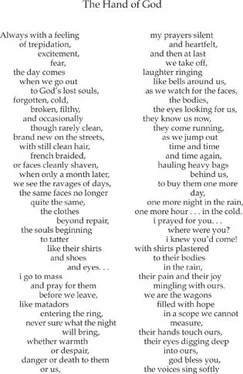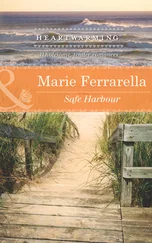Danielle Steel - Safe Harbour
Здесь есть возможность читать онлайн «Danielle Steel - Safe Harbour» весь текст электронной книги совершенно бесплатно (целиком полную версию без сокращений). В некоторых случаях можно слушать аудио, скачать через торрент в формате fb2 и присутствует краткое содержание. Год выпуска: 2004, ISBN: 2004, Издательство: Random House, Inc., Жанр: Старинная литература, на английском языке. Описание произведения, (предисловие) а так же отзывы посетителей доступны на портале библиотеки ЛибКат.
- Название:Safe Harbour
- Автор:
- Издательство:Random House, Inc.
- Жанр:
- Год:2004
- ISBN:9780440237624
- Рейтинг книги:4 / 5. Голосов: 1
-
Избранное:Добавить в избранное
- Отзывы:
-
Ваша оценка:
- 80
- 1
- 2
- 3
- 4
- 5
Safe Harbour: краткое содержание, описание и аннотация
Предлагаем к чтению аннотацию, описание, краткое содержание или предисловие (зависит от того, что написал сам автор книги «Safe Harbour»). Если вы не нашли необходимую информацию о книге — напишите в комментариях, мы постараемся отыскать её.
Safe Harbour — читать онлайн бесплатно полную книгу (весь текст) целиком
Ниже представлен текст книги, разбитый по страницам. Система сохранения места последней прочитанной страницы, позволяет с удобством читать онлайн бесплатно книгу «Safe Harbour», без необходимости каждый раз заново искать на чём Вы остановились. Поставьте закладку, и сможете в любой момент перейти на страницу, на которой закончили чтение.
Интервал:
Закладка:
Ophélie had talked about losing Ted and Chad for the past month, but she had said little about their marriage, except that from her perception, it had been perfect. And she had talked a little about Chad's mental illness, and the stress it had put on all of them, particularly Ted, since he was so unwilling to accept it. She barely saw the strain his denial had put on her, trying to bridge the gap between father and son, while keeping Pip happy.
She found the subject of dating of no interest to her when they discussed it. She had said for the past month that she had no interest in marrying again, or even in dating.
The eighty-three-year-old man had commented that she was too young to give up on a romantic life, and in spite of his intense grief over his wife, he said he was hoping to go out with other women, as soon as he met one who appealed to him. He wasn't embarrassed to admit he was looking.
“What if I live to be ninety-five, or even ninetyeight?” he said optimistically. “I don't want to be alone until then. I want to get married.” All feelings were fair game here. Nothing was shocking or taboo. The hallmark of the group was that they were all honest, and tried to be. As honest as they were with themselves at least. And some of them admitted that they were angry at their loved ones for dying, which was a normal part of the grief process. They each had to work through whatever aspect of their grief they were wrestling with at the moment. Until then, Ophélie had been deadlocked in depression. But they all noticed this week that she seemed better. She said she thought she was, but she was afraid she would slip back again. And she talked about wanting to find a job after the summer, which she thought might help her.
When Ophélie mentioned it, Blake, the leader of the group, questioned her about what kind of job she wanted, and she admitted she didn't know. Ophélie had been referred to the group by her doctor, when she told him she wasn't sleeping at night right after Ted and Chad died. She had been reluctant to come at first, and it had taken her eight months to do it. She was sleeping too much by then, and eating far too little. Even she knew that she was seriously depressed, and it was unlikely to get better unless she did something about it. It had been hard at first to get over her own sense that she had failed somehow because she couldn't solve her own problems. But no one else in the group had been able to either, and most people couldn't. The smart ones tried to reach out at least, and despite her initial skepticism, even Ophélie had to admit it had made some slight difference in her life, even after a month. At least she had others in the same boat to talk to. It made the process just a little bit less lonely, and she felt less like a freak for the things she was experiencing and thinking. She was able to share with them, without shame, how disconnected she felt from Pip, and that she sneaked into Chad's room more often than she should, just to lie on his bed and smell his pillow. The others had all done similar things, and were experiencing varying degrees of the same problems, with spouses, or children, or even parents. One woman had admitted to the group that she hadn't had sex with her husband in a year since her son died, she just couldn't. Ophélie was always impressed by the things they were willing and able to say to each other, without shame. She felt safe in their midst.
The goal of the group was to heal the wound, bind the broken heart, and deal with the practical issues of daily living. The first questions Blake asked each of them every week were “Are you eating? Are you sleeping?” And in Ophélie's case, he often asked her if she had gotten out of her nightgown since their last meeting. Sometimes their progress was measured in such tiny increments that no one outside of the group would have been impressed with what they had accomplished. But each of them knew how hard the baby steps were, and what a difference it made when you finally achieved one. They celebrated each other's victories, and sympathized with each other's anguish. And you could tell early on who the successes would be, those who were willing to go through the agony of moving forward. It was by no means an easy process, and even making the commitment to be there meant something. And the wounds that were touched on were so raw that sometimes when they left after a meeting, the pain was worse rather than better. But dealing with it was part of the healing process. At times, saying something out loud was exhilarating, and at other times just getting it out was exhausting. Ophélie had experienced both ends of the spectrum in the past month, and most of the time, afterward she was exhausted, but also grateful. And when she thought about it, she knew that it had helped her, far more than she had hoped.
Her doctor had recommended this particular group because Ophélie had resisted the idea of antidepressants, and the group itself was less formal than some. And the doctor had a profound respect for the man who ran it, Blake Thompson. He had a Ph.D. in clinical psychology, had done grief work for nearly twenty years, and was somewhere in his mid-fifties. He was a warm, practical man, who was open to trying anything that worked, and reminded the group often that there was no one right way to go through the grief process. As long as they were doing whatever worked for them, he was more than happy to support it. And when it wasn't working, he was tireless in his efforts, encouragement, and creative suggestions. He often felt that when people left the group, they had broadened their lives to something more than the life they'd been living prior to their loss. And to that end, he had just suggested singing lessons to a woman who had lost her husband, scuba diving lessons to a man who'd lost his wife in a car accident, and a religious retreat to a woman who had been a confirmed atheist, and was finding deep religious feelings for the first time since the death of her only son. All he wanted for the people in the group was for their lives to be better than they had been before he met them. And for twenty years, his results had been fairly impressive. The group was challenging, and painful at times, but much to every-one's surprise, not depressing. All he asked from them when they began was to be open-minded, kind to themselves, and respectful of each other. What they discussed in the group was to be kept only among themselves. And he was adamant about a four-month commitment.
And although some people had met their new spouses in his groups, he strongly discouraged people from dating each other while they were in it. He didn't want people either showing off, or hiding things, in order to impress each other. That request and the privacy of the group he had borrowed from the twelvestep model, and he had found them helpful, although now and then there were people in the group who grew attached to each other and started dating before the group ended. Even there, he reminded people that there was no “right model” for new relationships or even marriage.
Some people waited years to find a new mate, others never did, nor wanted to. Some felt they needed to wait a year before dating or remarrying, others married literally weeks after they lost a spouse. In his opinion, it didn't mean you hadn't loved your late husband or wife, it meant that you felt ready to move on and make another commitment. And no one else had a right to judge if that was right or wrong. “We are not the grief police here,” he reminded the group from time to time. “We're here to help and support each other, not judge each other.” And he always shared with each group that he had come into this particular line of work when he lost his wife, and a daughter and son, his only two children at the time, in a car accident on a rainy winter night that he had thought at the time had been the end of his life. And when it happened, he wished it had been. Five years later he had remarried, to a wonderful woman, and they had three children. “I would have married earlier, if I'd met her sooner, but she was worth waiting for,” he always told them, with a smile that never failed to touch the people with whom he shared the story. The focus of the group was not on remarriage, but it was an issue that came up, and was a focal point for some, and of no interest to others, many of whom had lost siblings, parents, or children, and were married. But they all agreed that the loss of a loved one, particularly a child, put an enormous strain on an existing marriage. In some cases, there were couples in the group, but more often than not, one spouse was willing to reach out earlier than the other, and it was actually rare for couples to attend together, although Blake always wished that people did that more often.
Читать дальшеИнтервал:
Закладка:
Похожие книги на «Safe Harbour»
Представляем Вашему вниманию похожие книги на «Safe Harbour» списком для выбора. Мы отобрали схожую по названию и смыслу литературу в надежде предоставить читателям больше вариантов отыскать новые, интересные, ещё непрочитанные произведения.
Обсуждение, отзывы о книге «Safe Harbour» и просто собственные мнения читателей. Оставьте ваши комментарии, напишите, что Вы думаете о произведении, его смысле или главных героях. Укажите что конкретно понравилось, а что нет, и почему Вы так считаете.










